| Article ID | Journal | Published Year | Pages | File Type |
|---|---|---|---|---|
| 2011508 | Pharmacological Reports | 2013 | 6 Pages |
BackgroundNo previous clinical study has been designed to assess the additive effect of metformin and a fibrate on lymphocyte secretory function. The aim of our study was to investigate whether metformin produces any effect on lymphocyte cytokine release in fibrate-treated patients with early glucose metabolism abnormalities.MethodsThe study included 80 patients with isolated impaired glucose tolerance and normal plasma lipids who complied with life-style modifications and received chronic fenofibrate treatment. These subjects were randomly assigned to 90 days’treatment with either high-dose metformin (3 g daily in three divided doses) or placebo. Plasma lipids, glucose homeostasis markers, plasma C-reactive protein and intercellular adhesion molecule-1 levels, as well as lymphocyte release of proinflammatory cytokines were determined before randomization and at the end of the treatment.ResultsBeyond improving glucose homeostasis, metformin reduced plasma C-reactive protein levels and lymphocyte release of tumor necrosis factor-α and interferon-γ, aswell as tended to reduce interleukin-2 release and plasma intercellular adhesionmolecule-1.ConclusionsOur study shows that metformin potentiates lymphocyte-suppressing, endothelial-protective and systemic anti-inflammatory effects of fenofibrate, and suggests that patients with impaired glucose tolerance may benefit the most from the combined treatment with a fibrate and high-dose metformin.
